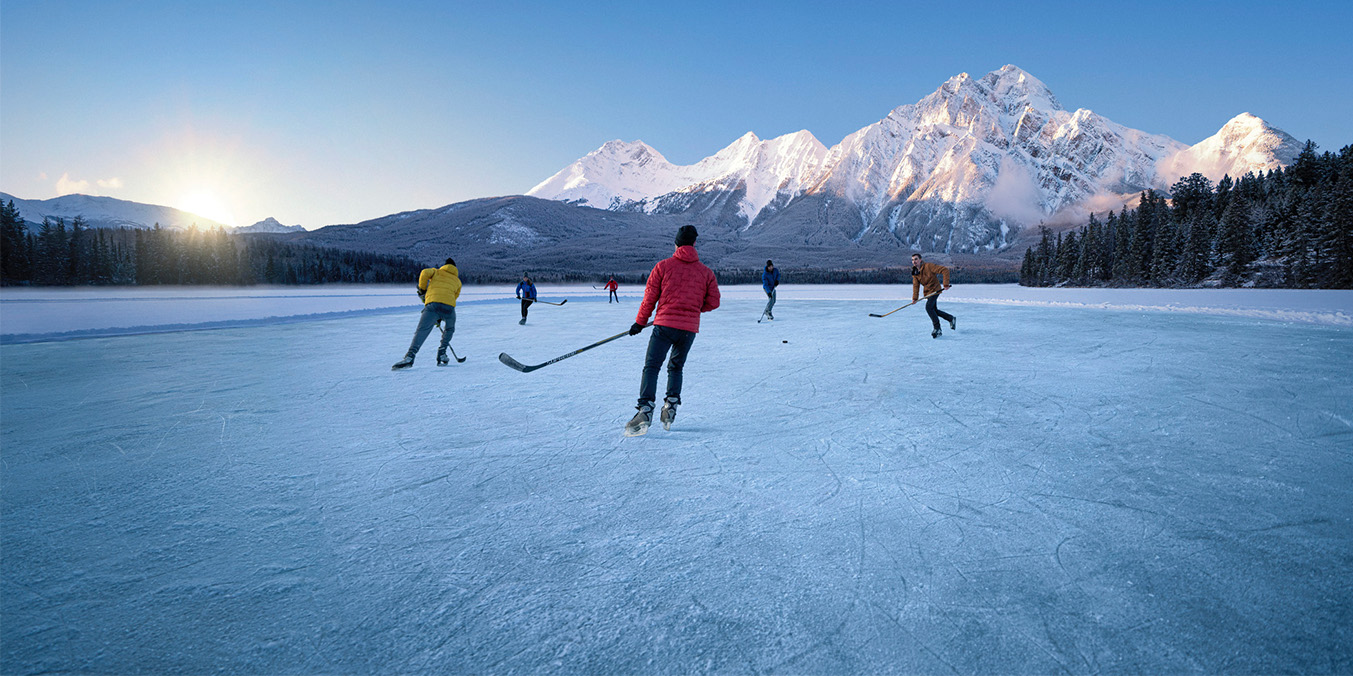So, is Alberta a good place to live? This is a question many ask when considering a move to Canada.
Hello there! I’m Nicola, co-founder and Canadian Immigration Consultant of Wild Mountain Immigration, and I’m here to share my personal journey and insights about living in Alberta. Alongside my partner Rob, who is also a co-founder, we embarked on an adventure that led us to call Alberta our home.
Originally from England, Nicola and I have travelled to over 35 countries. Yet, it was Canada that truly captured our hearts. We first moved to Vancouver, where we lived for two years, soaking in the coastal vibes and the vibrant city life. In 2017, we transitioned to Alberta on working holiday visas under the International Experience Canada program. By 2020, we became permanent residents and are now proud Canadian citizens.
Our Canadian journey in Alberta began in earnest when we chose to settle in Canmore. Nestled amidst the towering peaks of the Rockies, Canmore has been our sanctuary for the past six years. The town, with its enchanting landscapes, vibrant community, and a plethora of outdoor activities, has offered us a life that’s both tranquil and exhilarating.
From the serene trails of Grassi Lakes to the bustling streets during the Canmore Folk Music Festival, every corner of this town tells a story. It’s not just the beauty of Canmore that’s captivating; it’s the spirit of the community, the warmth of the neighbours, and the rhythm of life that resonates with our own.
While our Alberta adventure didn’t conclude in Canmore, our inherent desire to explore took us across the vast landscapes of this province. From the bustling vibes of Calgary and Edmonton to the serene beauty of locales like Banff, Drumheller, Medicine Hat, and Lethbridge, we’ve traversed diverse terrains. Every town, every city, and every park has enriched our Alberta tale.
Is Alberta a good place to live?
Alberta, often referred to as the “Heart of the Wild West” in Canada, is a province that evokes images of picturesque mountains, vast prairies, and a sky that stretches endlessly.
But beyond its natural beauty, many potential settlers and curious minds often ponder about the practicalities of living in this region. From its economic prospects to the vibrancy of its cultural scene, there’s much to consider. As someone who has experienced the province firsthand, I’m here to shed light on the realities of Alberta living.
Economic landscape
When pondering the question, “Is Alberta a good place to live?”, one cannot ignore the province’s economic standing. Alberta’s economy is a beacon in Canada, anchored firmly by the oil and gas industry. While the energy sector has historically been Alberta’s economic mainstay, the province is evolving. There’s a growing emphasis on diversification, with industries such as technology, agriculture, and tourism making notable strides.
In the broader Canadian economic landscape, Alberta’s wage structure stands out. According to data from Talent.com the average salary in Alberta is a commendable $75,582 annually, or $38.76 per hour. This rate not only underscores Alberta’s position among the top earners in the country but also showcases its competitive edge. For perspective:
- Manitoba: The average salary peaks at a whopping $177,391.
- Saskatchewan: Workers earn an average of $128,700 annually.
- Ontario: The average stands at $88,875 per year.
- British Columbia: The typical salary is around $87,629 annually.
- Quebec: The average wage is $66,337 per year.
Entry-level positions in Alberta start at approximately $44,045 per year, while seasoned professionals can earn up to $168,970 annually. This robust earning potential, juxtaposed with the province’s diverse economic avenues, accentuates Alberta’s allure for both newcomers and established residents.
Lifestyle and cultural richness
Alberta is a province that seamlessly blends the thrill of outdoor adventures with the vibrancy of urban experiences. The majestic Canadian Rockies, encompassing iconic destinations like Banff and Lake Louise, beckon with their pristine landscapes, offering unparalleled opportunities for hiking, skiing, and wildlife observation. Beyond the mountains, Alberta’s national parks and expansive prairies further enrich the outdoor experience.
Urban centers such as Calgary and Edmonton pulse with energy, offering a dynamic mix of city life. These cities are not just about the hustle and bustle; they are cultural hubs teeming with festivals, theaters, and museums. Alberta’s multicultural heritage ensures a diverse and rich tapestry of cultural events, celebrations, and festivals throughout the year, reflecting its deep-rooted cultural richness.
Education and healthcare
Alberta is renowned not just for its breathtaking landscapes but also for its commitment to advancing education and healthcare. The province’s education system is a testament to its forward-thinking approach. Rooted in the innovative strategies developed by Edmonton Public Schools in the 1970s, Alberta has championed a school choice plan.
This initiative empowers parents, giving them the freedom to select schools and programs that best align with their child’s needs. Such a model promotes healthy competition among educational institutions, encouraging them to continuously elevate their standards. Charter schools, in particular, benefit from this system, having the liberty to explore diverse teaching methodologies. This commitment to quality is evident in the consistent accolades received by institutions like the University of Alberta and the University of Calgary.
Beyond traditional education, Alberta is also addressing the evolving needs of its industrial sector. There’s a growing emphasis on producing skilled trade workers and STEM professionals. To achieve this, the province is investing in student internships and introducing an apprenticeship system for high school students interested in vocational and trades education. This ensures that students are equipped with the skills needed for the modern workforce.
Turning to healthcare, Alberta’s dedication to its residents is unwavering. The Alberta Health Care Insurance Plan is a testament to this, ensuring that every resident receives top-tier medical care. But the province’s vision goes beyond just providing medical services. Recognizing the importance of transparency and accountability, Alberta is working on initiatives to enhance the efficiency of its healthcare system. This includes setting goals to reduce waiting times, enhance access to primary care, and expedite medical procedures.

Cost of Living in Alberta
Alberta, with its picturesque landscapes and vibrant culture, offers a unique blend of natural beauty and urban sophistication. Beyond its scenic and cultural allure, the province stands out for its competitive cost of living, especially when compared to the national average in Canada.
A significant factor in Alberta’s affordability is its housing market. According to data from Loans Canada, the average home price in Alberta in May 2023 was $465,198, marking an increase from $452,987 in May 2022. This represents a 2.7% year-over-year growth. In comparison, the national average home price in May 2023 was $729,044, up from $706,700 in May 2022, indicating a 3.2% increase.
Beyond housing, Alberta’s overall expenses, including entertainment, taxes, and other essentials, are among the lowest in Canada. This ensures residents have more disposable income, enhancing their quality of life. Based on data from Study Alberta, here’s a basic estimate of the cost of living in Alberta:
| Item | Monthly | Full Year (Sept. to Aug.) |
|---|---|---|
| Accommodation (Single, off-campus, not shared) | $800–$1,050 | $9,600–$12,600 |
| Food | $250 | $3,000 |
| Clothing | $50 | $600 |
| Miscellaneous* | $155 | $1,860 |
| Total | $1,255–$1,505 | $15,060–$18,060 |
*Miscellaneous costs encompass monthly phone ($50), laundry ($30), and recreation/entertainment ($75).
In essence, Alberta’s commitment to offering a high standard of living at a competitive cost, as evidenced by the data from reputable sources, makes it a prime destination for both current residents and those considering relocation.
Pros and Cons of living in Alberta
When considering the question, is Alberta a good place to live?, it’s essential to weigh both the advantages and challenges the province presents.
Pros of living in Alberta
- Economic Strength: Alberta boasts one of the highest median household incomes in Canada, with many families earning above the national average. This economic strength is driven by industries such as oil, agriculture, and increasingly, technology.
- Higher Wages: The province offers competitive salaries, with Alberta having the third-highest average wage in the country. From entry-level positions to top-tier jobs, employees enjoy higher-than-average wages.
- Strong Job Market: With a diverse economy, Alberta presents numerous employment opportunities. The province has seen a significant improvement in its employment rate over the past year, making it one of the top regions for job seekers in Canada.
- Affordable Properties: Housing in Alberta is more affordable compared to many other Canadian provinces. The average price for a single-family home remains reasonable, making homeownership attainable for many.
- Low Taxes: Alberta residents benefit from one of the lowest income tax rates in Canada. This fiscal advantage is especially pronounced for high-income earners.
- Health Care: The Alberta Health Care Insurance Plan ensures residents have access to quality medical services. From routine check-ups to specialized treatments, the province's healthcare system is both comprehensive and efficient.
- Natural Beauty: Alberta's landscapes are breathtaking. From the Rocky Mountains to the boreal forests in the north, nature enthusiasts have a plethora of options for exploration and recreation.
Cons of living in Alberta
- Harsh Winters: Particularly in the northern regions, Alberta's winters can be long and severe. The cold temperatures and snow can be challenging for those unaccustomed to such conditions.
- Road Maintenance: The province's roads, especially in certain areas, require better upkeep. The cold winters often lead to road damage, necessitating frequent repairs.
- Crime Rate: While efforts are underway to address the issue, Alberta's crime rate is higher than some other Canadian provinces. However, recent statistics show a decline in certain types of crimes.
- Nightlife: While cities like Edmonton and Calgary offer vibrant nightlife, some of the more rural communities might not meet the expectations of those seeking a bustling social scene.
- Income Taxes for Lower Earners: While Alberta's tax rates are beneficial for high-income earners, those on the lower end of the income spectrum might find themselves paying more than in some other provinces.
Conclusion
So, is Alberta a good place to live? The province has long been a beacon for those seeking economic opportunities, and its reputation is well-deserved. With a robust economy driven by diverse sectors, from the energy industry to burgeoning tech hubs, Alberta offers a promising landscape for professionals and entrepreneurs alike.
But Alberta is not just about work. Its natural beauty is unparalleled. The majestic Rocky Mountains, the serene prairies, and the vast boreal forests provide a playground for outdoor enthusiasts. Whether you’re into hiking, skiing, or simply enjoying nature’s wonders, Alberta has something to offer.
The vibrant culture of Alberta is another feather in its cap. With a rich tapestry of festivals, arts, and culinary delights, there’s always something happening. Cities like Calgary and Edmonton are bustling with events, while smaller towns offer their unique charm and traditions.
However, as with any place, Alberta has its challenges. The winters can be harsh, and the economy, while strong, has its fluctuations. It’s essential to weigh these factors against the many positives the province offers.
Ultimately, the question of is Alberta a good place to live? is subjective. It depends on individual preferences, career goals, and lifestyle choices. But for many, including countless immigrants and Canadians from other provinces, the answer has been a resounding yes. It’s a place of opportunity, beauty, and community. But don’t just take our word for it. Visit Alberta, experience its wonders, and decide for yourself.
Nicola Wightman
Nicola Wightman is a regulated Canadian Immigration Consultant (RCIC) under the College of Immigration and Citizenship Consultants (CICC). Her professional immigration consultant number is R706497.
Canadian immigration
Learn about moving to Canada, the Express Entry immigration process, working in Canada, studying in Canada, and more.
January 12, 2025
Trudeau Steps Down – What’s in Store for Canada’s Immigration Policies?
Prime Minister Justin Trudeau has announced his resignation as the leader of the Liberal Party and…
December 11, 2024
New Immigration Pathways Canada 2025: What You Need to Know
Canada is introducing several new immigration pathways in 2025, offering exciting opportunities for…
December 10, 2024
Major Express Entry Changes Proposed to Address LMIA Fraud
Canada’s immigration system may soon undergo significant Express Entry changes, as Immigration…
Start Your Canadian Immigration Journey
Our experts make the process clear, stress-free, and successful, so you can move forward with confidence and focus on what matters most.

Contact Us
Immigration questions and service enquiries
Consultation
Speak to an expert
immigration consultant
"*" indicates required fields



